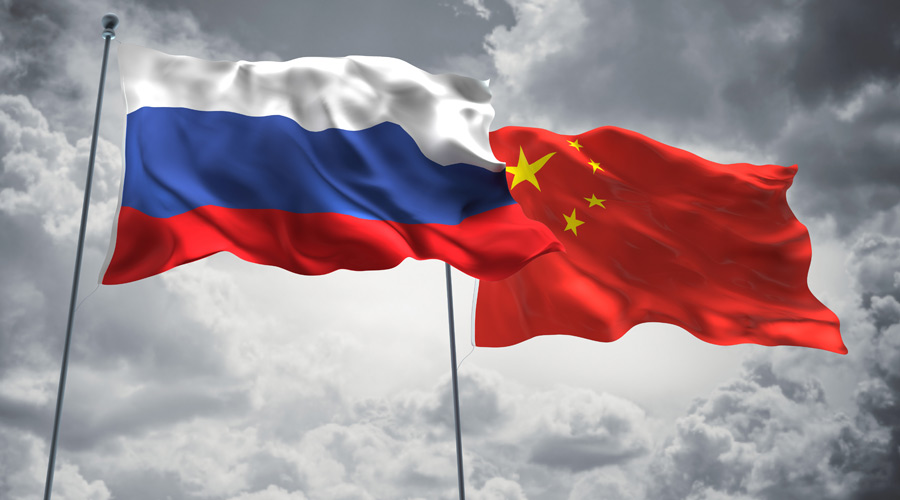Beijing's ambassador to Paris said ex-Soviet states don't have "actual status" under international law. Meanwhile, G7 leaders called for an expansion of the Ukraine grain export deal. DW has the latest.
France on Sunday expressed its dismay after China's ambassador to Paris questioned the sovereignty of former Soviet countries like Ukraine.
When asked if he believed Crimea is part of Ukraine or not, Ambassador Lu Shaye told French television that historically it was part of Russia and had been offered to Ukraine by former Soviet leader Nikita Khrushchev.
"These ex-USSR countries don't have actual status in international law because there is no international agreement to materialize their sovereign status," Lu added, in Friday's interview.
Paris hit back Sunday by stating its "full solidarity" with all the allied countries affected, which it said had acquired their independence "after decades of oppression."
"On Ukraine specifically, it was internationally recognized within borders including Crimea in 1991 by the entire international community, including China," a spokesperson for France's foreign ministry said.
The spokesperson added that China will have to clarify whether these comments reflect its official position or not.
The Baltic states of Estonia, Latvia and Lithuania, which were all formerly part of the Soviet Union, reacted along the same lines as France.
Here are some of the other notable developments concerning Russia's war in Ukraine on Sunday, April 23:
The Group of Seven (G7) economic powers called Sunday for an expansion of the deal to allow Ukrainian grain to be exported through the Black Sea.
Russia had blocked the grain exports when it launched its invasion of Ukraine in February last year. In July, however, Russia and Ukraine agreed to a deal brokered by the UN and Turkey, which allowed Kyiv to export more than 27 million tons of grain from several of its ports.
In recent weeks, Moscow has signaled that it will not allow the deal to continue beyond May 18.
Russia says a list of demands to facilitate its own grain and fertilizer exports has not been met.
In the communique after a two-day meeting in Miyazaki, Japan, the G7 agriculture ministers said they "strongly support the extension, full implementation and expansion of (the Black Sea Grain Initiative) BSGI."
"We condemn Russia's attempts to use food as a means of destabilization and as a tool of geopolitical coercion and reiterate our commitment to acting in solidarity and supporting those most affected by Russia's weaponization of food," the communique said.
Russian Foreign Minister Sergey Lavrov is due to discuss the export deal with UN Secretary-General Antonio Guterres in New York this week.
A senior advisor to the office of Ukraine's president has reacted angrily to Italian Defense Minister Guido Crozetto's comments about the need to bring Ukraine and Russia to the table for peace talks.
Italian newspaper La Stampa cited Crozetto as saying that Italy wanted to help Ukraine with its right to self-defense but was also striving to achieve peace.
"The gasoline is being poured very well, but there is no one to be the fireman," Crozetto added, lamenting that Russia, China, and the US blocking initiatives in the UN Security Council.
But Mykhailo Podoliak, an advisor to President Volodymyr Zelensky's office, dismissed Crozetto's remarks.
"When someone talks about a 'peaceful settlement,' Ukraine only hears 'surrender, capitulate, comply with the Russian ultimatum'," he said on Twitter.
"After 423 days of bloody war, this is impossible. Because this is a deliberate war of destruction waged by Russia, not a mythical 'conflict.' There is no room for settlement," Podoliak added.
The row comes amid concerns that the Kremlin is influencing anti-war coalitions around the world, including Germany.Separately,
Britain on Sunday noted that Russia has launched a major new drive for volunteer recruits to its military, adding that ads have been appearing on TV, billboards and social media.
An intelligence update from the UK's Defense Ministry said the ads play up the need for "real men," while also highlighting the financial benefits of joining up.
The Ministry said it was highly unlikely that Moscow would achieve its target of attracting 400,000 volunteer fighters.
It also noted that the Wagner private military was competing for the limited pool of Russian fighting-age men.
The Ministry said authorities were "almost certainly seeking to delay any new, overt, mandatory mobilization for as long as possible to minimize domestic dissent."
Ukraine's outspoken former ambassador to Germany Andrij Melnyk called on Ukraine's allies on Saturday to spend 1% of gross domestic product (GDP) on military weapons for Ukraine.
"We are thankful to our allies for their military help. But: it is not enough. Ukraine needs 10 times more to finish Russian aggression this year," Melnyk wrote on Twitter.
In the case of Germany, Europe's biggest economy, 1% would be more than €39 billion ($43 billion) alone. But the Ukrainian diplomat said the amounts are small compared to spending during World War II.
So far, Ukraine backers have provided a total of about €55 billion in support, according to Melnyk. A tracker by the Kiel Institute for the World Economy puts the total global military aid commitment at over €75 billion.
NATO leaders met in Ramstein, Germany on Friday, to discuss additional military support for Ukraine.
Meanwhile, DW published a report Saturday about how Russia is using guided bombs in Ukraine, which can travel long distances but still .have a high degree of accuracy.











